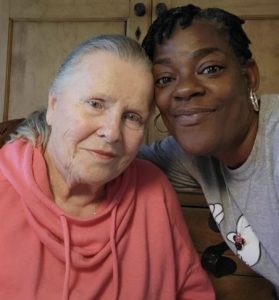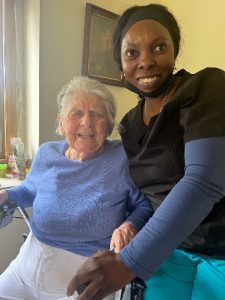Aging in Place in Rural Areas
There are many elderly people living in rural areas throughout the United States, and Maryland is no exception. This can present some advantages, but also challenges, for those choosing to age in place. Here, the aging in place specialists at Avila Home Care explain how living in rural areas impacts the aging in place experience.
Benefits to Aging in Place in Rural Areas
Rural areas have an inherently slower pace of life, which can mean a more relaxed, stress-free living environment. Stress is a major cause of serious diseases, such as high blood pressure, heart disease and even obesity, so living in such an environment can help to decrease the risk of these conditions. A plethora of open spaces makes outdoor exercise easy and convenient, which also encourages senior health. Many of those who live in rural areas have strong ties to their homes and communities, fostering strong connections with friends and neighbors. This can be invaluable in rural communities, especially if family is not nearby.
Challenges to Aging in Place in Rural Areas
The wide-open spaces inherent in rural areas are peaceful and relaxing, but also present challenges for elderly individuals, especially those in poor health. Rural hospitals are more likely to close than urban ones, forcing patients to travel long distances to more urban medical centers. Studies have shown that elderly people in rural areas are more likely to delay routine checkups or treatments, and consequently suffer from more chronic diseases. Transportation in general can be a challenge in rural areas, with little to none of the public transportation available in urban areas. Rural infrastructure may not be able to meet the challenges poor weather brings, and blizzards, thunderstorms and other weather crises may leave rural residents stranded without electricity or water.
Ways to Mitigate Rural Living Challenges
Healthcare technology has evolved rapidly over the years, and the onset of telehealth technology has been a boon for elderly patients living in rural communities. Telehealth is a collection of means or methods for enhancing health care, public health, and health education delivery and support using telecommunications technologies. It allows for those who would otherwise be isolated to receive professional, live medical care and consultation through devices, such as phones, tablets and computers. Maryland has also implemented legislation, known as The Maryland Loan Assistance Repayment Program for Physicians, which will now give special loan assistance and forgiveness to physicians who choose to practice in rural areas, providing much-needed support to these isolated communities.
A strong support network of friends, family and caregivers is important for all who age in place, but doubly so for those aging in place in rural communities. Whether a daily check-in to ensure all is well, or a live-in helper to assist with daily tasks, aging in place in rural areas can be a success provided there are a few dedicated people willing to provide assistance and companionship.
How Avila Home Care Can Help
As mentioned, a strong team of dedicated individuals is critical for those aging in place in rural areas. At Avila Home Care, we believe every elderly person should be able to enjoy their golden years in the comfort and safety of their own home, regardless of the area in which they live. Our experienced and trained caregivers are available for any of your daily needs, and are exciting to form a relationship with you today. For more information, reach out to us!
Faith, Music and Minnie- Avila Caregiver
Bernadette Lowther Brings Hope to Her Clients
The youngest of three girls and three boys, Avila Caregiver Bernadette Lowther grew up in Baltimore and attended the Historic St. Paul Community Baptist Church, where she still worships today. “Once the foundation of faith is set, you have it forever.”
Reginald Nwaike is Avila’s Caregiver of the Month for November, 2021!
Congratulations to Reginald Nwaike– Avila’s Caregiver of the Month for November 2021! Reginald has been with Avila for 1 ½ years, and in his time with us he has proved himself to be an invaluable team member. He sets an extremely high standard, and is detail-oriented, conscientious, and compassionate. Reginald always holds his clients’ needs as the top priority. …
“A Well of Wisdom”
Avila Caregiver Omowumi “Esther” Ajepe’s Story
Omowumi Ajepe was born in 1978 in the southwestern region of Nigeria, Lagos, where she was raised. “Esther” was her baptismal name, which she now goes by. When Esther was a girl in Nigeria, she enjoyed going to school. She also loved the company of her grannies when they visited, which is how her love of seniors was inspired and nurtured.




